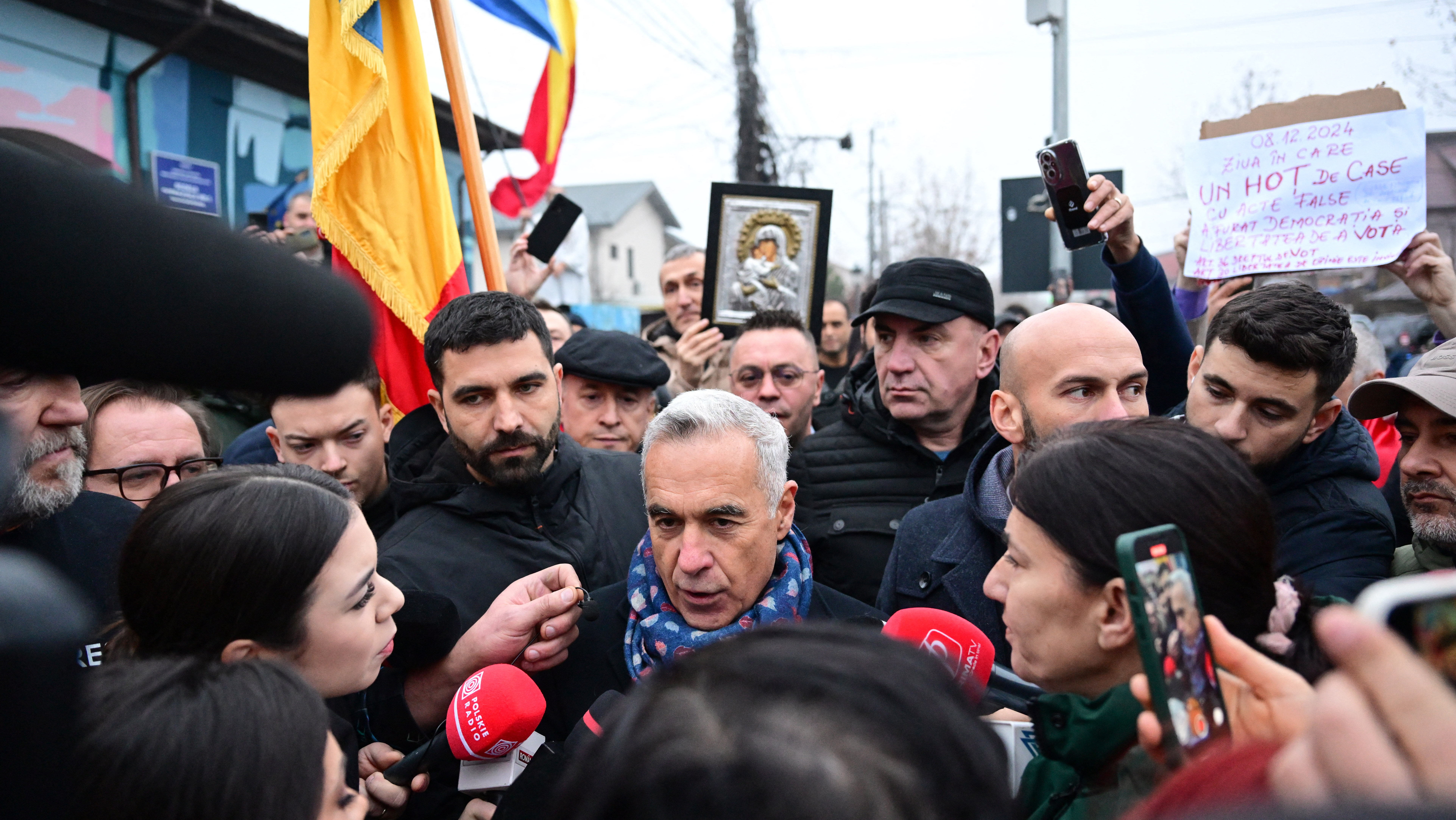Last Friday Romania witnessed a decision that many say harkens back to Europe’s darkest days. The Constitutional Court, in close collaboration with President Klaus Iohannis and the ruling Social Democratic Party (PSD), annulled the results of the first round of the presidential election, citing allegations of foreign interference.
The decision followed a surprising first-round result in which independent candidate Călin Georgescu shocked Romania’s mainstream political elites and media by securing 22 per cent of the vote. The far-right ultranationalist candidate’s success was largely attributed to his savvy use of TikTok and a highly energized campaign in the two weeks leading up to the election.
Georgescu, however, was no stranger to the public before his presidential bid. He has held significant positions within Romania’s state bureaucracy and was previously nominated for prime minister by the AUR party, which is infamous for its openly anti-Hungarian rhetoric. Notably, AUR also garnered nearly 18 per cent of the vote in the parliamentary elections held concurrently with the presidential election.
The other candidate who advanced to the second round of the now-annulled presidential election was also an outsider: Elena Lasconi, a liberal—by Western standards, however, she might not be considered a typical liberal, as she openly expresses patriotism, displays the Romanian flag alongside the EU flag, and occasionally wears traditional folk costumes—former TV journalist. Lasconi, like Georgescu, is an anti-establishment figure, vocal in her criticism of the current political elite and adept at channelling voter discontent and frustration with mainstream parties.
It is no surprise, then, that both the Social Democratic Party (PSD) and the National Liberal Party (PNL)—Romania’s two largest establishment parties—reacted with dismay to the performances of Georgescu and Lasconi. This discontent was amplified by the fact that neither party’s candidate came close to qualifying for a potential second round.
Blame it on Russia
But how does the Romanian state—often touted as an example for Hungary to follow—respond in such a situation? The answer appears straightforward: they shout Russia, and the problem is ‘solved.’
‘Ultra-nationalist Călin Georgescu benefited from a TikTok campaign that resembled Kremlin-run influence operations in Ukraine and Moldova, according to declassified Romanian intelligence documents. The files alleged that Moscow is targeting Romania as an enemy state through aggressive hybrid action,’ as reported by POLITICO.
It is important to note that Georgescu’s campaign included sharp criticism of the EU and NATO, along with a pledge to reduce aid to Ukraine. Remarkably, both the United States—a close ally of Romania—and the European Union have welcomed the annulment of the first round of the presidential election. Brussels even sent TikTok an urgent request for information, seeking more details about the ‘platform’s increasingly controversial role’ in the election’s first round.
‘The developments in Romania could establish a troubling precedent’
It is, however, not surprising at all. Instead, it has become a familiar pattern in recent years: when a candidate disfavoured by the progressive mainstream achieves electoral success within the Western sphere of influence—be it in the EU or the South Caucasus—the media empire and NGO networks closely tied to this elite immediately cry electoral fraud. However, it is unprecedented for a democratic election to be annulled on such grounds. This makes the developments in Romania particularly significant, as they could establish a troubling precedent.
Does Elections Even Matter Anymore?
The Constitutional Court’s decision was sharply criticized not only by Georgescu but also by his opponent, Lasconi. ‘Today is the moment when the Romanian state trampled over democracy. God, the Romanian people, the truth, and the law will prevail and will punish those who are guilty of destroying our democracy,’ she declared immediately after the annulment.
Make no mistake, the author of these lines would not have celebrated a victory by Georgescu, as it would have signaled a grim future for our Hungarian compatriots in Transylvania. However, disregarding democracy and the will of the electorate to this extent is not a solution—it only serves to fuel extremism.
The constitutional court is playing with fire by deciding to repeat the presidential election. Georgescu’s supporters are not Russian bots or hackers; they are real Romanians, people prepared to take to the streets if they feel their voices have been silenced by the system.
The reaction from the EU and Washington is particularly alarming, though hardly surprising. ‘The integrity of Romania’s elections is paramount for Romanians’ hard-earned democracy. It is the choice of the Romanian people whom they elect. No other country or foreign actor has that right,’ the US State Department said in a statement. The contradiction is glaring, isn’t it? It’s supposedly the Romanians’ choice who they elect, yet if a candidate not favoured by the Americans wins, the election results are annulled.
If It Were Hungary...
The events are particularly intriguing from a Hungarian perspective, as Romania has long been held up by the Hungarian opposition as a model country in contrast to Hungary. In its rhetoric, the opposition often claims—frequently without basis—that Romania has surpassed Hungary economically and socially, placing the blame squarely on Prime Minister Viktor Orbán and his government.
Imagine the reaction if similar events unfolded in Hungary in 2026. Suppose the Hungarian Constitutional Court were to annul election results—perhaps following an opposition victory—on the grounds of alleged foreign interference. Viktor Orbán already faces daily criticism from Hungary’s Western ‘allies’, often being called ‘dictator’ for far less, and in such a scenario, their response would undoubtedly be far more severe.
But Hungary is a democracy, and such a scenario is entirely unthinkable. Democracy is not under threat here as it is in our neighbours, or in the so-called ‘model democracies’ of the West, where right-wing candidates are increasingly targeted through various legal proceedings to block their chances of winning.
Hungarian democracy, thankfully, is alive and well, with the conservative forces committed to doing everything necessary to ensure that it remains so in the future.
Related articles:








